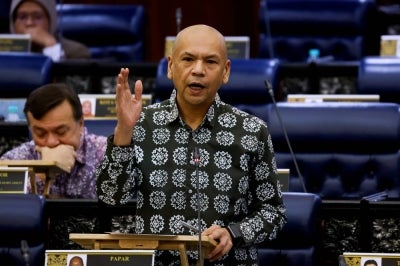Govt must implement stronger policies to protect coral reefs from escalating threats
Local initiatives, such as coral reef restoration projects, marine litter clean-ups and sustainable tourism practices are also important as they directly contribute to reef health and resilience.
SHARIFAH SHAHIRAH
SHAH ALAM - The government must take decisive action by implementing critical policies and regulations to combat the escalating threats to coral reefs.
Reef Check Malaysia marine biologist and programme coordinator Alvin Chelliah said the government played a pivotal role in safeguarding coral reefs which were under significant stress from both human activities and environmental factors.
"The government can implement several key policies and regulations to reduce stressors on coral reefs.
"By establishing and managing Marine Protected Areas (MPAs), the government can restrict harmful human activities like fishing, tourism and coastal development in key reef zones.
"This can help reduce physical damage and allow these ecosystems to recover," he said.
Chelliah also outlined several crucial measures that the government should adopt to safeguard coral reefs:
Fishing regulations
Implementing sustainable fishing practices, including banning destructive methods like blast fishing, cyanide fishing and setting catch limits, could help reduce the pressure on reef fish populations and maintain ecological balance within coral reef ecosystems.
Coastal zone management
Enforcing regulations to control coastal development can minimise sedimentation, pollution runoff and habitat destruction.
This could also help prevent water quality degradation and physical damage to reefs.
Climate change mitigation
Policies aimed at reducing greenhouse gas emissions, such as promoting energy efficiency, renewable energy and participating in international climate agreements could help mitigate ocean warming and acidification, the key factors in coral bleaching.
Water quality regulation
Laws and regulations to manage nutrient runoff, sewage discharge and chemical pollutants from agriculture, industry and urban areas can improve water quality around reefs and reduce stress on coral organisms.
Education and awareness programmes
It is important to carry out public awareness campaigns and educational initiatives that can inform local communities, tourists and businesses about the importance of coral reefs, their vulnerabilities and how individual actions impact reef health.
Chelliah said while these regulatory measures were crucial for addressing local stressors, their successes varied.
"In some regions with well-enforced MPAs and strict fishing regulations, there have been observable improvements in reef health and resilience to bleaching events.
"However, the effectiveness of regulations can be hindered by inadequate enforcement, lack of resources, political challenges and difficulties in addressing global stressors like climate change that required international cooperation," he said.
He highlighted that various governments and communities were also adopting adaptation strategies, such as coral restoration projects, which complemented regulatory measures by directly boosting reef resilience.
While regulatory approaches were vital for addressing local stressors on coral reefs, Chelliah said they were insufficient on their own to combat large-scale bleaching events driven by climate change.
He stressed that effective protection against these widespread threats required simultaneous global efforts to reduce greenhouse gas emissions and enhance climate resilience.
He added that the local communities and stakeholders played a crucial role in preserving coral reefs alongside government efforts.
"Local communities often hold valuable traditional ecological knowledge about reefs, including sustainable fishing practices, coral restoration techniques and natural resource management.
"Community-based management is essential for effective conservation where the engaging local communities in decision-making processes and empowering them to manage nearby reefs through co-management arrangements or community-based MPAs can lead to better conservation outcomes.
"When communities have a stake in management decisions, they are more likely to enforce regulations and actively monitor reef health," he said.
He added that local initiatives, such as coral reef restoration projects, marine litter clean-ups and sustainable tourism practices, were also important as they directly contributed to reef health and resilience.
Supporting alternative livelihoods that reduce dependence on reef resources such as eco-tourism, handicrafts and sustainable agriculture, he said can alleviate pressure on coral reefs and foster economic incentives for conservation.
He said local communities can play a pivotal role in educating residents and visitors about the importance of coral reefs, the threats they faced and sustainable practices to protect them.
"This awareness can lead to behavioural changes that reduce negative impacts on reefs," he said.
Download Sinar Daily application.Click Here!














